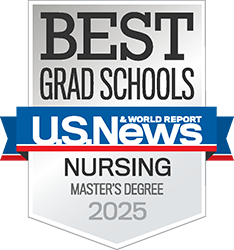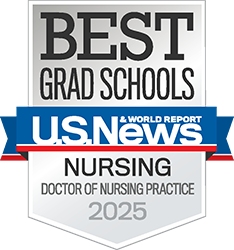2023 Diaz-Lewis Lecture Focusing on family caregivers



Two of UTHealth Houston’s leading researchers of elder abuse and neglect shared key findings and insights at the Carla Diaz-Lewis Domestic Violence Lecture at Cizik School of Nursing on Oct. 24.
Speaking at the 2023 event were Carolyn Pickering, PhD, RN, a professor in the Department Research who was recently named the Isla Carroll Turner Chair in Gerontological Nursing at Cizik School of Nursing; Julia Hiner, MD, an assistant professor and program director of the Geriatric Medicine Fellowship at McGovern Medical School; and Manuel Leston, community outreach officer with the University of Texas Police at Houston.
The annual series was established through a gift from Carla Diaz-Lewis and her husband, Kenneth Lewis. Its aim is to teach health care providers and community members how to identify and assist victims of domestic violence.
Risk factors and protective factors
Half of all older adults with dementia have experienced abuse or neglect, Pickering said in her keynote address. Family caregivers make up the largest group of people providing care, and most of them have no choice about stepping into that role.
“These are family members, caregivers, and people living their lives day to day,” she said.
Family caregivers often learn skills taught in nursing schools so they can manage their loved ones’ physical needs, but less attention has been paid to helping caregivers reduce and manage stress. “We have medicalized instead of meeting people where they are,” Pickering said.
She listed several factors that increase risk for abuse, including the quality of the pre-existing relationship between caregiver and receiver; the tendency of the caregiver to use avoidance as a coping strategy; depression, anxiety, or substance abuse disorders; poverty; and ageist beliefs. Also cited was “hostile attribution bias,” or reading meaning or intent into the behaviors of a person with dementia.
Pickering is optimistic about research findings on protective factors to reduce the risk of elder abuse or neglect, which have only recently been identified. For example, caregivers are considerably less likely to mistreat their family member if they got a good night’s sleep, have access to adult day care services, and are self-compassionate.
“Self-compassion comes from Buddhist philosophy, and it means actively responding to yourself with kindness in times of difficulty,” Pickering said. “It’s a skill anyone can learn, and it’s not something you have to keep teaching.”
She encourages physicians to prioritize the dementia symptoms that cause the caregivers most distress.
Screening for mistreatment
Hiner sees “mistreatment” as an umbrella term that covers various types of abuse, neglect, and financial exploitation.
“Health care providers should screen for abuse,” she said. “All of us stand between mistreatment and our patients.”
Hiner outlined three tools used by UTHealth Houston clinicians to screen for mistreatment:
- The Elder Mistreatment Screening and Response Tool (EM-SART), which is used in emergency departments;
- Virtual COaching in Making Informed Choices on Elder Mistreatment Self-Disclosure (VOICES), a tool used on mobile devices in emergency departments to educate patients about mistreatment and facilitate self-reporting; and
- Detection of Elder Abuse through Emergency Care Technicians (DETECT).
She also discussed available resources, including the Texas Elder Abuse and Mistreatment (TEAM) Institute. Through TEAM, McGovern Medical School partners with the Texas Department of Family and Protective Services Division of Adult Protective Services (APS) to assess elder mistreatment throughout the state.
Spotting scams
Technology is fueling more sophisticated and personally targeted scams. Phone numbers can be spoofed, and even the voices and images of family members and trusted friends can be replicated.
Leston identified two red flags common to all scams: an urgent need for money, and a request for personal information. One common ruse targeting older adults is the “grandparent scam,” in which someone claiming to be a grandchild frantically calls and claims to be in some kind of trouble.
“Scammers will push people to action before they have time to think,” said Leston. The key to thwarting a scam is to stop and think. “Ask questions that only the person (they are claiming to be) could answer.”



